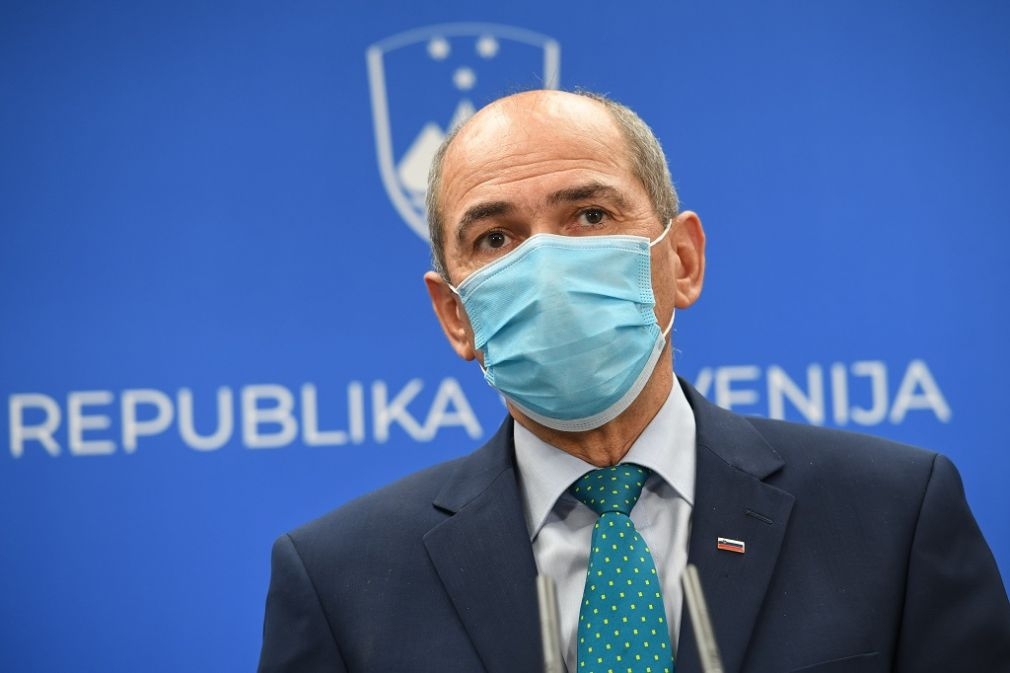In a post on Twitter, Prime Minister Janez Janša announced that due to the spread of new coronavirus infections across Slovenia, restrictions on movement in municipalities will come into force on Tuesday. The restriction will initially apply for seven days for the entire country, and the release will take place gradually, according to the regions that will be the first to limit the epidemic, he announced. “We are doing everything we can to keep contact to a minimum and to remove restrictions as soon as possible. Let’s protect lives, health and well-being. #Wecan,” he wrote. The government has already adopted the decree at a correspondence session.
As the Prime Minister pointed out in a tweet, the number of infections is increasing, so they are initiating additional measures from the government’s plan to control the spread of the new coronavirus epidemic. Thus, the restriction of movement to municipalities will apply on Tuesday, and the same exceptions will be allowed as in the spring, he announced.
The restriction will initially apply to the entire country for seven days. It will be released gradually by regions that will be the first to limit the epidemic, the prime minister wrote in a tweet. “Let’s do everything we can to keep contact to a minimum and to remove restrictions as soon as possible. Let’s protect lives, health and well-being,” Janša called on the citizens. He added the key We can.
In a tweet, Janša also referred to today’s statement by the Ministry of Health that more than 700 beds will be available for patients with covid-19 in the coming days. “Activities to provide additional capacity in healthcare are ongoing. Also in spas and hotels. There will be no need for tents and fairgrounds,” Janša wrote.
Transition between municipalities is allowed, subject to recommendations for individuals, for 13 exceptions, namely:
1. Arrival and departure for work and performance of work tasks,
2. performance of economic, agricultural and forestry activities,
3. elimination of imminent danger to health, life and property,
4. protection and assistance to persons in need of support or for the purpose of care or care of family members or in the case of parental care and contact with the child,
5. access to pharmacies, health and sanitation services and spa treatment,
6. access to foreign diplomatic and consular missions,
7. access to emergency services,
8. access to the performance of tasks related to the operation of judicial and administrative and law enforcement authorities,
9. access to services for persons with special needs,
10. performance of maintenance or seasonal work on a private facility or land for members of the same household,
11. travel of persons, who entered the Republic of Slovenia for the purpose of transit through the territory of the Republic of Slovenia to a neighbouring country or to their place of residence in the Republic of Slovenia
12. access to shops or services in another municipality if they are closer to the place of residence of persons than are those shops or services in the municipality of residence, or if they are not in the municipality of residence,
13. maintenance of the grave, where the individual must demonstrate proof of the lease of the grave or other relevant evidence.
In accordance with the decree, for walks on green areas and sports and recreational activities, where it is possible to maintain at least three meters of mutual distance from other individuals, regardless of the provisions of other ordinances, individuals or persons from a common household do not have to wear protective masks.
The following measures continue to apply
The movement of people between 21.00 and 6.00 am is still temporarily restricted, with the exception of: elimination of imminent danger to health, life and property, arrival and departure for work and the performance of urgent work tasks, access and provision of services for emergencies, provision of food or medicine delivery services, travel of persons.
The decree prohibits all events, gatherings, weddings, and religious ceremonies, as well as any gathering of more than six people, unless they are close family members or members of a joint household. When gathering up to six people, a minimum safety distance must be ensured in accordance with the adopted instructions or recommendations of the NIJZ, which are published on the NIJZ website.

